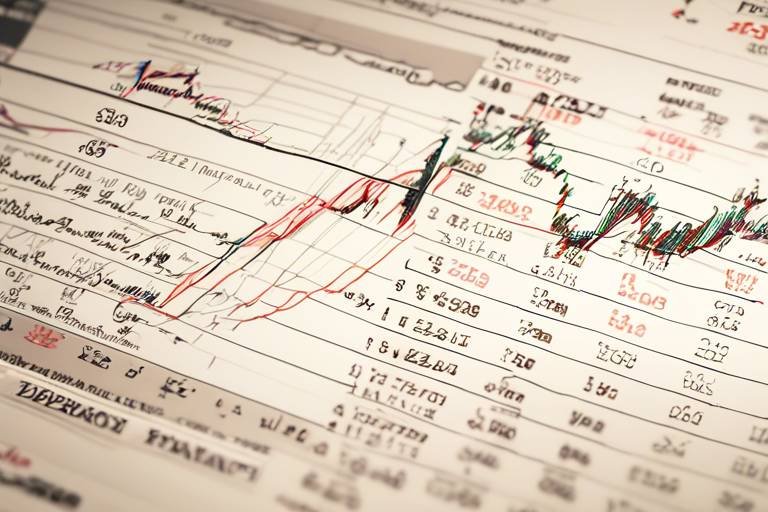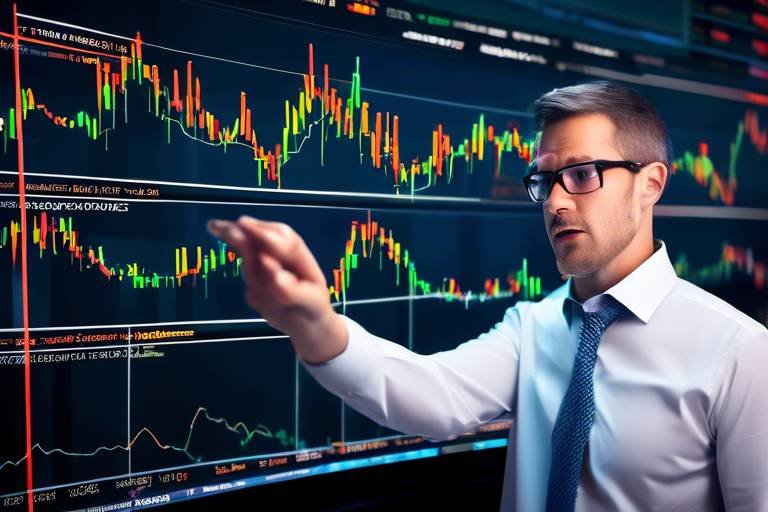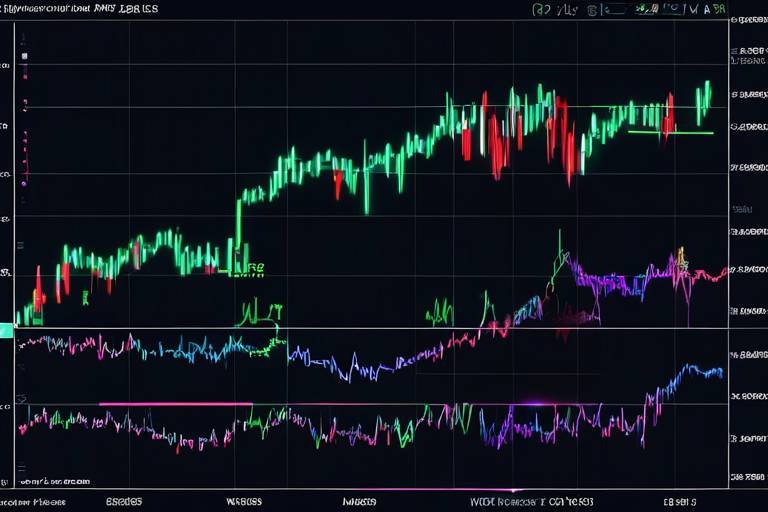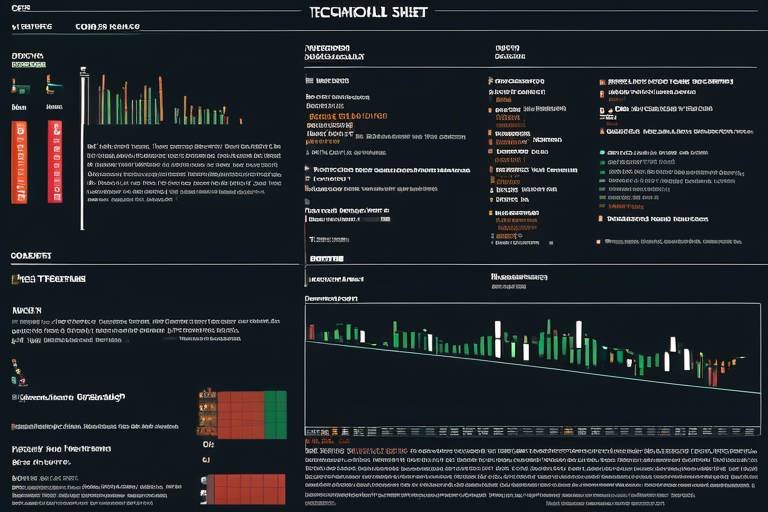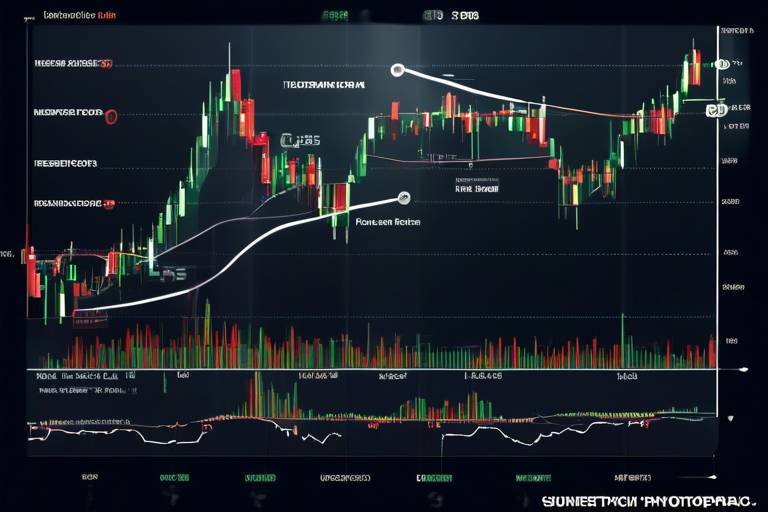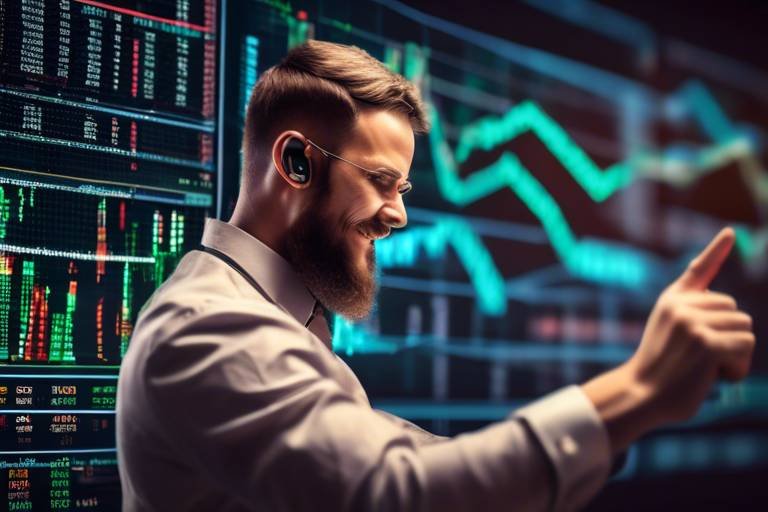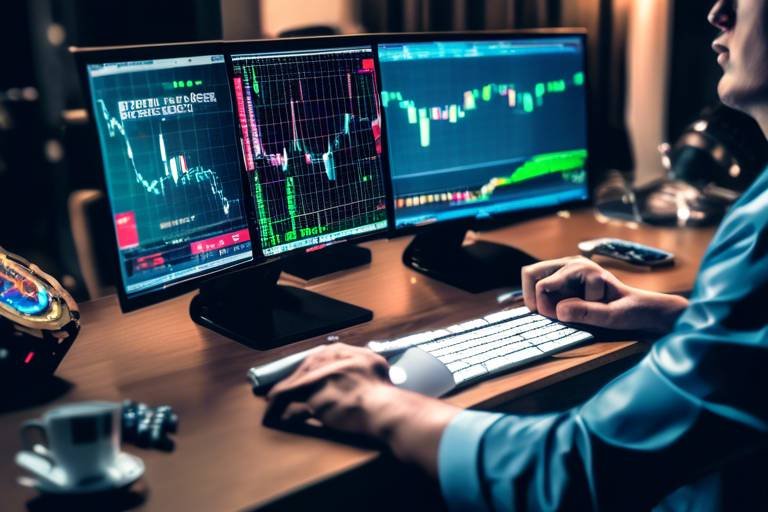Understanding the Psychology of Trading in Crypto Markets
Welcome to the fascinating world of cryptocurrency trading, where the stakes are high and the emotions run even higher. In this digital arena, understanding the psychological factors that influence trading decisions is just as important as analyzing charts and market trends. Why? Because the mind can be a trader's greatest ally or worst enemy. Picture this: you’re watching the market surge, and your heart races with excitement. But wait! That same excitement can quickly morph into fear or greed, leading you to make impulsive decisions. In this article, we will explore the intricate web of emotions, decision-making processes, and behavioral biases that shape the trading landscape.
Emotions are the invisible puppeteers in the trading game. They can drive you to make decisions that are not just irrational but also detrimental to your trading success. Have you ever felt that rush of adrenaline when a coin you invested in starts to rise? That’s the thrill of potential profit, but it can just as easily turn into a nightmare if fear creeps in during a downturn. Understanding how emotions like fear, greed, and excitement influence your trading decisions is crucial. The key is to develop strategies that help you manage these feelings effectively, allowing you to trade with a clear mind. After all, trading isn’t just about numbers; it’s about understanding yourself.
Traders are not immune to cognitive biases, which can cloud judgment and lead to poor decision-making. One common bias is confirmation bias, where traders only seek out information that supports their existing beliefs about a particular asset. This can create a dangerous echo chamber that blinds them to contrary evidence. Another prevalent issue is overconfidence, which can lead to excessive risk-taking and ultimately devastating losses. Recognizing these biases is the first step toward making more rational trading decisions. By being aware of how your mind can play tricks on you, you can take proactive steps to mitigate their impact.
Ah, FOMO—the bane of many traders’ existence. It’s that gut-wrenching feeling when you see others making a killing in the market while you sit on the sidelines. This emotional response can lead to hasty, impulsive decisions that often result in significant losses. When you’re driven by FOMO, you might jump into a trade without proper analysis, only to watch the market turn against you. It’s essential to remain disciplined and stick to your trading strategy, even when the fear of missing out is screaming in your ear. Remember, successful trading is a marathon, not a sprint!
To combat FOMO, consider implementing specific strategies that help you stay grounded. Here are a few tips:
- Set clear entry and exit points: By defining your strategy beforehand, you can reduce the emotional turmoil of making last-minute decisions.
- Take regular breaks: Stepping away from the screen can help clear your mind and reduce the urge to react impulsively to market fluctuations.
- Practice mindfulness: Techniques like meditation can help you stay focused and calm, allowing for better decision-making.
Identifying your personal FOMO triggers is a powerful way to regain control over your trading behavior. Are you more susceptible to FOMO when you’re scrolling through social media? Or perhaps it strikes when you hear a friend bragging about their latest crypto win? By understanding what specifically triggers your FOMO, you can develop strategies to manage your reactions more effectively. This self-awareness can lead to more thoughtful and strategic trading practices.
Overconfidence is another psychological pitfall that can derail even the most seasoned traders. It’s that feeling of invincibility that leads you to believe you can predict market movements with ease. But beware! This bias can lead you to take on excessive risks, often resulting in significant financial losses. Acknowledging the danger of overconfidence is vital for maintaining a balanced approach to trading. Remember, the market is unpredictable, and no one has a crystal ball.
Market sentiment is like the weather in the trading world—volatile and ever-changing. It can significantly influence trading behavior, making it essential for traders to stay in tune with the prevailing mood. Social media, news events, and community opinions can all shape sentiment and provide valuable insights into potential market movements. Understanding how these external factors impact your trading decisions can give you a competitive edge.
Social media platforms are a treasure trove of information reflecting the prevailing sentiment in the crypto market. By analyzing trends, you can better gauge public perception and make informed trading decisions. Are people buzzing about a particular coin? Or is there a growing sense of skepticism? Keeping your finger on the pulse of social media can help you navigate the emotional landscape of trading.
Staying informed about news events and their potential impact on the market is crucial for traders. Major announcements, regulatory changes, or technological advancements can shift sentiment dramatically. By anticipating these changes, you can adjust your trading strategies in real-time, keeping you one step ahead of the game.
Q: How can I control my emotions while trading?
A: Implementing a solid trading plan and sticking to it can help you manage your emotions. Regularly taking breaks and practicing mindfulness techniques can also be beneficial.
Q: What are some common cognitive biases in trading?
A: Common biases include confirmation bias, overconfidence, and loss aversion. Being aware of these can help you make more rational decisions.
Q: How does social media influence crypto trading?
A: Social media can reflect market sentiment and trends, impacting traders' perceptions and decisions. Analyzing these trends can provide valuable insights.

The Role of Emotions in Trading
When it comes to trading, especially in the volatile world of cryptocurrencies, emotions can be both a friend and a foe. Imagine standing on a roller coaster, feeling the rush of excitement as you climb higher, only to be gripped by fear as you plummet down. This is akin to what traders experience in the crypto markets. Emotions such as fear, greed, and excitement can significantly influence trading decisions, often leading to irrational choices that can impact profitability.
Fear, for instance, is a double-edged sword. On one hand, it can protect traders from making hasty decisions during market downturns; on the other, it can cause them to miss out on lucrative opportunities. When prices begin to dip, fear can trigger a panic sell-off, leading to losses that could have been avoided if the trader had remained calm. Conversely, greed can push traders to chase after profits, often resulting in overextending themselves and taking on more risk than they can handle. This emotional tug-of-war can lead to a roller coaster of profits and losses, leaving traders feeling exhausted and frustrated.
To illustrate the impact of emotions in trading, consider the following table that highlights common emotional responses and their potential outcomes:
| Emotion | Response | Potential Outcome |
|---|---|---|
| Fear | Panic selling | Losses due to hasty decisions |
| Greed | Chasing profits | Over-leveraging and increased risk |
| Excitement | Impulsive trading | Unplanned trades leading to losses |
So, how can traders manage these powerful emotions? First and foremost, it’s essential to develop a trading plan that includes clear entry and exit points. This plan acts as a roadmap, helping traders stay focused and reducing the likelihood of emotional decision-making. Additionally, practicing mindfulness and maintaining a level head during trading can help in keeping emotions in check.
Moreover, traders should consider keeping a trading journal. This journal can serve as a reflective tool, allowing traders to analyze their emotional state during each trade and learn from their experiences. By understanding their emotional triggers, traders can develop strategies to mitigate their effects, leading to more rational and calculated trading decisions.
In conclusion, while emotions are an inherent part of the trading experience, they don’t have to dictate outcomes. By recognizing the influence of fear, greed, and excitement, traders can take proactive steps to manage their emotions and enhance their trading performance.

Behavioral Biases in Crypto Trading
When it comes to trading in the volatile world of cryptocurrencies, understanding the behavioral biases that can cloud judgment is essential. These biases are like invisible barriers that can lead traders to make irrational decisions, often at the worst possible times. For instance, many traders fall prey to confirmation bias, where they only seek out information that supports their existing beliefs about a particular coin or market trend. This selective thinking can prevent them from seeing the bigger picture, leading to poor trading outcomes.
Another common bias is overconfidence. Imagine a trader who has just made a series of successful trades. This success can lead them to believe they have a special insight into the market, prompting them to take on excessive risks. It's akin to a gambler who has just hit a winning streak and decides to bet it all, convinced that luck is on their side. This mindset can be detrimental, as it often leads to significant losses when the market takes an unexpected turn.
In the fast-paced environment of crypto trading, the Fear of Missing Out (FOMO) is another emotional pitfall. Traders see others making profits and feel compelled to jump in, often without doing their due diligence. This impulsive behavior can result in buying at inflated prices, only to watch the asset's value plummet shortly after. To navigate these biases effectively, traders need to develop strategies that promote rational decision-making.
One effective way to combat these biases is to create a trading plan. A well-structured plan should include:
- Clear entry and exit points
- Risk management strategies
- Criteria for evaluating trades
By adhering to a predefined plan, traders can reduce the influence of emotions and biases on their decisions. Additionally, regularly reviewing past trades can help identify patterns in behavior, allowing traders to adjust their strategies accordingly.
Ultimately, recognizing and understanding these behavioral biases is crucial for anyone looking to succeed in crypto trading. By being aware of how emotions and cognitive biases can distort decision-making, traders can create a more disciplined approach that enhances their chances of success in this unpredictable market.
What are behavioral biases in trading?
Behavioral biases in trading refer to the psychological factors that can lead to irrational decision-making, often resulting in poor trading outcomes. These include biases like overconfidence, confirmation bias, and FOMO.
How can I overcome these biases?
To overcome behavioral biases, traders should develop a solid trading plan, stick to it, and regularly review their trades to identify patterns in their decision-making.
Why is understanding market sentiment important?
Understanding market sentiment helps traders gauge public perception and anticipate potential market movements, allowing for more informed trading decisions.

Fear of Missing Out (FOMO)
The Fear of Missing Out (FOMO) is a powerful emotional driver in the world of cryptocurrency trading. Imagine standing on the sidelines of a thrilling roller coaster, watching others scream with joy as they zoom through exhilarating twists and turns. You can feel your heart racing, not just from the thrill of the ride but also from the fear that you might miss out on an experience that everyone else is enjoying. This is precisely how FOMO operates in trading; it pushes individuals to make impulsive decisions in the hopes of not being left behind as prices soar.
When traders experience FOMO, they are often tempted to buy into a cryptocurrency at its peak, driven by the excitement of potential profits. However, this emotional response can lead to rash decisions that may result in significant financial losses. The market is notorious for its volatility, and without a solid strategy, traders can find themselves caught in a whirlwind of emotions, leading to what can feel like a roller coaster ride of their own finances.
To illustrate the impact of FOMO, consider the following table that outlines the common scenarios where FOMO can lead to poor trading decisions:
| Scenario | FOMO Response | Potential Outcome |
|---|---|---|
| Price Surge | Immediate purchase without research | Buying at peak price, leading to losses |
| Social Media Hype | Investing based on trending topics | Investing in a pump-and-dump scheme |
| Peer Pressure | Following friends' trades | Making uninformed decisions |
Recognizing the signs of FOMO is the first step toward managing it effectively. Traders should be aware of their emotional triggers and the situations that amplify their FOMO response. For instance, seeing friends or influencers posting about their successful trades can create a sense of urgency to act without proper analysis. To combat this, it’s essential to establish a well-defined trading plan that includes clear entry and exit points. By sticking to a disciplined approach, traders can avoid the pitfalls of emotional trading and make decisions based on logic and strategy rather than fleeting feelings.
Moreover, taking a moment to pause and reflect can be incredibly beneficial. Ask yourself questions like, "Am I making this decision based on sound analysis or just emotion?" or "What are the long-term implications of this trade?" By fostering a mindset of strategic thinking rather than reactive behavior, traders can navigate the crypto market with greater confidence and success.

Strategies to Combat FOMO
Fear of Missing Out, or FOMO, can be a trader's worst enemy in the fast-paced world of cryptocurrency. It's that nagging feeling that everyone is making profits while you sit on the sidelines, and it can lead to impulsive decisions that derail even the best trading strategies. So, how do we combat this emotional beast? Here are some effective tactics to keep FOMO at bay and maintain a disciplined approach to trading.
First and foremost, one of the most powerful strategies is to set clear entry and exit points before making any trades. By having predefined levels at which you will buy or sell, you can take the emotion out of your decision-making process. For instance, if you decide that you will buy Bitcoin when it hits $30,000 and sell it when it reaches $35,000, you create a roadmap for your trading journey. This way, even when the market is buzzing with excitement, you can stick to your plan and avoid the temptation to jump in on a whim.
Another useful approach is to practice mindfulness. When you feel the urge to trade due to FOMO, take a step back and assess your emotions. Ask yourself, “Am I making this decision based on data or just fear?” A few moments of reflection can help you regain control and stick to your trading strategy. Consider keeping a trading journal where you can document your feelings and thoughts during trades. This practice not only helps you recognize patterns in your behavior but also allows you to learn from past experiences.
Additionally, diversifying your portfolio can reduce the pressure to chase after every trending coin. When your investments are spread across various assets, you're less likely to feel that you must jump on the latest hype train. Instead, you can focus on long-term trends and fundamentals rather than short-lived market fads. This approach not only helps mitigate risk but also gives you the peace of mind to make more calculated decisions.
It's also beneficial to limit your exposure to social media during critical trading periods. While platforms like Twitter and Reddit can provide valuable insights, they can also amplify FOMO. When you see others celebrating their wins, it can trigger an emotional response that leads to poor trading choices. Consider setting specific times for social media checks, rather than scrolling aimlessly throughout the day.
Lastly, having a solid support system can be invaluable. Join trading communities where members share their strategies and experiences. Engaging with like-minded individuals can help you stay grounded and remind you that trading is a marathon, not a sprint. You can even establish 'accountability partners' within these communities to help each other stay disciplined and focused.
By implementing these strategies, traders can effectively combat FOMO and make more rational, data-driven decisions. Remember, the key is to maintain a disciplined mindset and stick to your trading plan, no matter how enticing the latest market trends may seem.
- What is FOMO in crypto trading? FOMO stands for Fear of Missing Out, which refers to the anxiety that traders feel when they believe they are missing profitable opportunities in the market.
- How can I manage my emotions while trading? Setting clear trading plans, practicing mindfulness, and limiting social media exposure can help you manage your emotions effectively.
- Is it important to diversify my crypto portfolio? Yes, diversifying your investments can reduce risk and lessen the temptation to chase after every trend.
- Can trading journals really help? Absolutely! Keeping a trading journal allows you to reflect on your decisions and emotions, helping you learn and improve over time.

Recognizing FOMO Triggers
In the fast-paced world of cryptocurrency trading, recognizing the triggers that lead to Fear of Missing Out (FOMO) is essential for maintaining a disciplined approach. FOMO can strike at any moment, often when traders see others making substantial profits or when a particular coin begins to skyrocket in value. This emotional response can lead to impulsive decisions that derail even the most carefully crafted trading strategies. So, how can traders identify their personal FOMO triggers?
Firstly, it's crucial to understand that FOMO often stems from a combination of external influences and internal emotions. External triggers can include:
- Social Media Buzz: Platforms like Twitter and Reddit can amplify excitement around specific cryptocurrencies, leading traders to jump in without proper analysis.
- News Headlines: Breaking news about a coin can create a sense of urgency, prompting traders to act quickly rather than thoughtfully.
- Peer Pressure: Seeing friends or colleagues making profits can create a strong desire to participate, even if it contradicts one's trading strategy.
On the internal side, personal feelings such as anxiety about missing out on potential profits or insecurity about one's trading skills can play a significant role. Recognizing these emotions is vital. A trader might find themselves feeling uneasy when they see a coin they had previously considered investing in suddenly gain traction. This sensation can be akin to standing on the sidelines of a thrilling rollercoaster ride while everyone else is enjoying the thrill—it’s tempting to jump in without a second thought.
Another effective way to recognize FOMO triggers is through self-reflection and journaling. Keeping a trading journal where you document not only your trades but also your feelings and thoughts during those trades can provide invaluable insights. Over time, patterns may emerge, revealing specific situations or market conditions that consistently lead to FOMO. For instance, you might notice that you tend to feel anxious right after a major market announcement or when a particular influencer tweets about a coin. This awareness can empower you to develop strategies to counteract those feelings.
Additionally, setting clear trading rules and sticking to them can help mitigate the impact of FOMO. By establishing criteria for entering and exiting trades, traders can create a framework that minimizes emotional decision-making. For example, if you decide that you will only invest in a coin after conducting thorough research and waiting for a specific price point, you can avoid the impulsive urge to buy when prices surge. This disciplined approach is like having a GPS for your trading journey—keeping you on course even when the excitement around you threatens to lead you astray.
In conclusion, recognizing FOMO triggers is not just about identifying external signals; it's also about understanding your emotional landscape. By acknowledging the factors that influence your trading behavior, you can cultivate a more strategic and less reactive trading style. Remember, the goal is to navigate the crypto markets with confidence, rather than being swept away by the tide of FOMO.
Q: What is FOMO in cryptocurrency trading?
A: FOMO, or Fear of Missing Out, refers to the anxiety that traders experience when they see others making profits in the market, leading them to make impulsive trading decisions.
Q: How can I combat FOMO?
A: Combat FOMO by setting clear trading strategies, maintaining a trading journal, and being aware of your emotional triggers.
Q: Are there specific times when FOMO is more likely to occur?
A: Yes, FOMO is often heightened during market rallies, significant news events, or when influential figures in the crypto community promote specific coins.

Overconfidence and Its Dangers
Overconfidence is a psychological phenomenon that can be particularly detrimental in the world of cryptocurrency trading. Imagine standing on a tightrope, feeling invincible, and believing that you can balance your way to success without any risk. This sense of invincibility often leads traders to take unnecessary risks, convinced that their knowledge and instincts are infallible. However, this overestimation of one's abilities can have disastrous consequences.
One of the most significant dangers of overconfidence is that it can cloud judgment. Traders may ignore critical market signals, dismiss warnings from more experienced peers, or fail to conduct thorough research before making trades. This behavior is akin to driving with blinders on; you might feel in control, but you're ultimately heading for a crash. The reality is that the crypto market is notoriously volatile, and even seasoned traders can face unexpected challenges. Overconfidence can lead to a false sense of security, prompting traders to invest larger sums than they can afford to lose.
Moreover, overconfidence often results in chasing losses. When traders experience a setback, their instinct may be to double down on their investments, believing they can quickly recover their losses. This reaction can lead to a vicious cycle of poor decision-making, where emotions drive trading choices rather than sound analysis. As a trader, it’s crucial to recognize that losses are part of the game. Accepting this reality and learning from past mistakes can foster a more balanced approach.
To illustrate the dangers of overconfidence, consider the following table that outlines common behaviors associated with this bias:
| Overconfidence Behavior | Potential Consequences |
|---|---|
| Ignoring market trends | Loss of investment due to poor timing |
| Investing without research | Increased risk of losses |
| Chasing losses | Depleting capital quickly |
| Overtrading | Higher transaction fees and potential losses |
So, how can traders combat overconfidence? First, it’s essential to set realistic expectations. Understand that no one can predict market movements with absolute certainty. By acknowledging the inherent risks and uncertainties, traders can foster a more cautious and analytical mindset. Additionally, seeking feedback from trusted peers or mentors can provide valuable perspectives that help mitigate overconfidence. Engaging in self-reflection after trades—whether successful or not—can also lead to improved decision-making in the future.
In conclusion, while confidence is a necessary trait for any trader, overconfidence can cloud judgment, leading to risky decisions and potential losses. By recognizing the signs of overconfidence and implementing strategies to manage it, traders can navigate the unpredictable waters of the cryptocurrency market more effectively. Remember, it’s not just about winning; it’s about making informed decisions that contribute to long-term success.
- What is overconfidence in trading? Overconfidence in trading refers to an inflated belief in one's ability to predict market movements, often leading to risky decisions.
- How can I recognize overconfidence in myself? Signs of overconfidence include ignoring market signals, making impulsive trades, and dismissing advice from others.
- What strategies can help combat overconfidence? Setting realistic expectations, seeking feedback, and reflecting on past trades can help manage overconfidence.
- Is a certain level of confidence necessary in trading? Yes, confidence is important, but it should be balanced with caution and a willingness to learn from mistakes.

The Impact of Market Sentiment
Market sentiment is like the pulse of the cryptocurrency world; it can change in an instant and often dictates the rhythm of trading decisions. Understanding this sentiment is crucial for traders who want to navigate the volatile waters of crypto markets effectively. Just imagine being on a roller coaster: the highs can be exhilarating, but the lows can be terrifying. Similarly, market sentiment can propel prices upwards or send them crashing down, often driven by emotional reactions rather than fundamental values.
Social media plays a pivotal role in shaping market sentiment. Platforms like Twitter, Reddit, and Telegram are buzzing with discussions that can sway opinions and influence trading behaviors. A single tweet from a prominent figure can send prices soaring or plummeting, making it essential for traders to stay updated on these trends. For instance, if a well-known influencer expresses excitement about a particular coin, you might see a surge in buying activity, driven by the collective enthusiasm of their followers. Conversely, negative news or sentiments can trigger panic selling, leading to sharp declines.
Moreover, news events can significantly impact market sentiment. Major announcements, regulatory changes, or technological advancements can shift traders' perceptions overnight. For example, when a government announces new regulations on cryptocurrency, traders may react with fear, leading to a temporary dip in prices. Conversely, positive news, such as the adoption of blockchain technology by a major corporation, can drive a wave of optimism, resulting in increased buying pressure.
To illustrate the interplay between sentiment and market movements, consider the following table that summarizes recent market events and their impacts on sentiment:
| Event | Date | Impact on Sentiment |
|---|---|---|
| Elon Musk Tweets About Dogecoin | May 2021 | Surge in Buying Activity |
| China Bans Cryptocurrency Mining | June 2021 | Panic Selling |
| Bitcoin ETF Approval | October 2021 | Increased Optimism |
Understanding how to gauge market sentiment can provide traders with a significant advantage. By analyzing social media trends and staying informed about news events, traders can anticipate potential shifts in the market. This awareness allows for timely adjustments in trading strategies, whether it's capitalizing on a bullish trend or protecting against a bearish downturn. After all, in the unpredictable world of cryptocurrency, being proactive rather than reactive can be the difference between profit and loss.
- What is market sentiment? Market sentiment refers to the overall attitude of investors toward a particular security or financial market. It is often driven by emotions and can lead to price fluctuations.
- How can I gauge market sentiment? Traders can gauge market sentiment by analyzing social media trends, news articles, and community discussions on platforms like Reddit and Twitter.
- Why is market sentiment important in crypto trading? Market sentiment is crucial because it can lead to rapid price changes. Understanding sentiment helps traders make informed decisions and adjust their strategies accordingly.

Analyzing Social Media Trends
In the fast-paced world of cryptocurrency trading, social media has emerged as a powerful force that shapes market sentiment. Think of social media as the town square of the digital age, where traders gather to share insights, opinions, and sometimes, wild speculations. The ability to analyze social media trends is not just a nice-to-have skill; it's essential for anyone looking to navigate the volatile waters of crypto trading.
When traders engage with platforms like Twitter, Reddit, and Telegram, they are not just exchanging information; they are also influencing each other's perceptions and decisions. For instance, a single tweet from a prominent figure can send prices soaring or crashing within minutes. This phenomenon highlights the importance of understanding the mood of the market. Are traders feeling optimistic, fearful, or uncertain? By tapping into these emotional currents, traders can better position themselves for potential market movements.
To effectively analyze social media trends, traders should consider several key factors:
- Volume of Conversations: The sheer number of posts related to a specific cryptocurrency can indicate growing interest or concern. A sudden spike in discussions often precedes significant price movements.
- Sentiment Analysis: Tools that gauge the overall sentiment of social media posts can help traders understand whether the mood is bullish (positive) or bearish (negative). This analysis can be done manually or through automated tools that sift through large volumes of data.
- Influencer Impact: Identifying key influencers in the crypto space can provide insights into market direction. When these influencers share their thoughts, their followers often react, leading to price fluctuations.
Moreover, it's crucial to stay aware of the context behind the chatter. For instance, a trending hashtag or viral meme might not always correlate with fundamental changes in a cryptocurrency's value. Instead, it could be a passing fad that doesn't hold long-term significance. Therefore, traders should always cross-reference social media insights with other data sources, such as market analysis and news reports, to make informed decisions.
In conclusion, analyzing social media trends is not just about keeping up with the latest gossip; it's about harnessing the collective consciousness of the trading community. By understanding the dynamics at play, traders can gain a competitive edge, making more informed and strategic decisions in the ever-changing landscape of cryptocurrency markets.
- How can I start analyzing social media trends for crypto trading?
Begin by following influential figures in the crypto space and using sentiment analysis tools to gauge public opinion. - What are some reliable tools for sentiment analysis?
Tools like LunarCrush, CryptoMood, and Social Search can help you track social media sentiment effectively. - Is social media analysis foolproof for trading decisions?
No, while it provides valuable insights, it's essential to combine social media analysis with other forms of research and market analysis.

The Importance of News Awareness
In the fast-paced world of cryptocurrency trading, staying informed about the latest news and developments is absolutely crucial. Why? Because the crypto market is notoriously volatile, and even a single tweet or news article can send prices soaring or plummeting within minutes. Traders who are oblivious to these changes can find themselves caught off guard, leading to missed opportunities or, worse, significant losses.
Think of the crypto market as a giant ocean. Just like a sailor needs to be aware of changing weather patterns to navigate safely, traders must monitor the news to steer clear of potential pitfalls. For instance, regulatory announcements, technological advancements, or even celebrity endorsements can create waves that drastically alter market sentiment.
Moreover, news can influence not only individual cryptocurrencies but the entire market as well. When major financial institutions announce their interest in a particular coin or when a country decides to ban crypto trading, the ripple effects can be felt across the board. Thus, having a keen eye on the news can help traders anticipate these shifts and adjust their strategies accordingly.
To effectively harness the power of news awareness, traders should consider the following:
- Follow Reliable Sources: It's essential to differentiate between credible news outlets and sensationalist media. Reliable sources provide accurate information that can be used to make informed trading decisions.
- Utilize News Aggregators: Platforms that compile news from various sources can save time and ensure that traders have access to the most relevant updates.
- Engage with the Community: Participating in forums and social media groups can provide insights into how other traders are interpreting news, which can help gauge market sentiment.
In conclusion, being aware of the news is not just an option; it’s a necessity for anyone serious about trading in the crypto markets. By staying informed, traders can not only protect their investments but also capitalize on opportunities that might arise from breaking news. Remember, in the world of crypto trading, knowledge truly is power!
- Why is news awareness important in crypto trading? News can significantly impact market prices and sentiment, making it crucial for traders to stay informed to make timely decisions.
- How can I stay updated on crypto news? Following reliable news sources, utilizing news aggregators, and engaging with the trading community are effective ways to stay updated.
- What types of news should I pay attention to? Traders should focus on regulatory announcements, technological advancements, market trends, and major financial institution activities.
Frequently Asked Questions
-
What psychological factors affect crypto trading?
In crypto trading, emotions like fear and greed play a huge role in decision-making. These feelings can lead to impulsive actions, such as buying at peaks due to excitement or selling in panic during dips. Understanding these emotions can help traders develop better strategies to manage them.
-
How does Fear of Missing Out (FOMO) impact trading decisions?
FOMO can cause traders to make hasty decisions, often leading to significant losses. When traders see others profiting, they may jump into trades without proper analysis. Recognizing FOMO triggers, such as social media hype, can help traders remain disciplined and stick to their strategies.
-
What are some strategies to combat FOMO?
To mitigate FOMO, traders can set clear entry and exit points before making trades. This helps them focus on their trading plan rather than emotional impulses. Additionally, practicing mindfulness and keeping a trading journal can aid in recognizing and controlling emotional reactions.
-
What are common behavioral biases in crypto trading?
Common biases include overconfidence, where traders believe they can predict market movements too accurately, and confirmation bias, where they only seek information that supports their existing beliefs. Recognizing these biases is crucial for rational decision-making and avoiding costly mistakes.
-
How can market sentiment influence trading?
Market sentiment, driven by news, social media, and community opinions, can significantly affect trading behavior. Traders who are aware of prevailing sentiments can anticipate market movements and adjust their strategies accordingly, making informed decisions based on collective emotions.
-
Why is news awareness important for traders?
Staying informed about news events can help traders anticipate changes in market sentiment. Major news can cause sudden price movements, and being aware of these can allow traders to make timely adjustments to their strategies, ultimately enhancing their chances of success.


